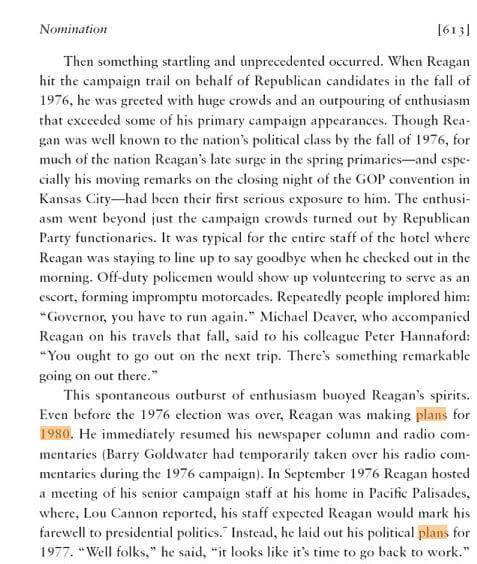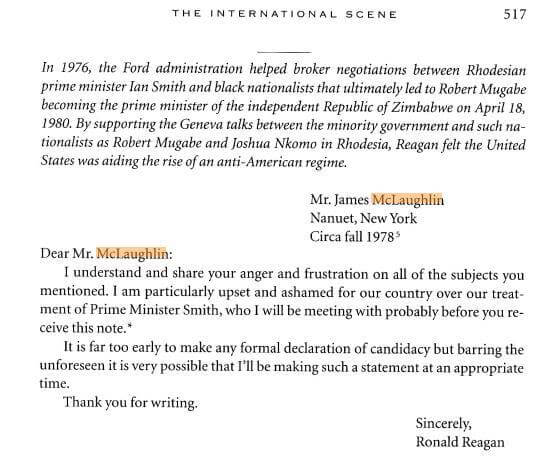The 2012 presidential election season has not been a normal one in many ways. History teaches us that every election season brings something new we haven’t seen before – but also that progress in electioneering, as in most walks of life, is more gradual than people are wont to predict. The candidate who says “this time, everything is different” or “the old rules don’t apply” or promises “new politics” or “fundamental change” is almost always selling a bill of goods to his or her supporters, and often to himself or herself. As conservatives, with a belief in experience as mankind’s best and only teacher, we should know better. One need only look back to 2010, when a popular wave brought victory mostly to candidates with the attributes and experience of traditonally successful candidates (Marco Rubio, Pat Toomey) and defeat to candidates who were genuinely unorthodox or similar to past losing campaigns (Sharron Angle, Carly Fiorina, Christine O’Donnell). The terrain shifted and new opportunities were created, but the basic rules of the game remained the same.
Even now, with the leading GOP contenders pouring money and manpower into the early primary states and the filing deadlines only a month away, we still have pundits and eager activists telling us that it’s not too late for new candidates to jump in. Please, Sarah Palin. Please, Chris Christie. Etc. It’s certainly true that a late entrant could yet generate enough support to shake up the fundamental dynamics of the race. It’s even possible that Rick Perry and Mitt Romney will prove vulnerable enough that a new entrant could still win. But let us not kid ourselves: the old rules still matter. It would be deeply unprecedented for a candidate in the modern (post-1972) age of presidential primaries to win the nomination without having laid any foundation of a national organization as late as the October before the primaries.
Some would have you believe that Ronald Reagan, who officially declared himself a candidate in November 1979, ran such a race. This is nonsense and historical ignorance.
Let me offer as Exhibit A an excerpt here from a portion of page 613 of Steven Hayward’s magisterial book The Age of Reagan, which documents the rise of Reagan from 1964 to 1980, and which I highly recommend. Hayward describes how Reagan began to plan for his run with a meeting of his senior staff in September 1976:

Hayward goes on to detail other steps Reagan took to prepare, such as beginning in 1978 to have aide Martin Anderson prepare task forces of issue experts to brief Reagan (Hayward notes that by the time of the 1980 election, there were a total of 461 people, experts in numerous policy areas, on these various issue task forces), and dinner parties with leading figures on the Right to drum up support. Ben Domenech cites Reagan’s 1978 foreign policy debates with William F. Buckley.
Nor was Reagan coy or private about his preparations to be the next Commander-in-Chief. How do I know? Because one of the many ordinary citizens to whom he signalled his interest in running was my father, the recipient of this letter in the fall of 1978, now reprinted at page 517 of Reagan: A Life in Letters:

I’m only scratching the surface here of the labors Reagan undertook to prepare himself and the public for his candidacy, to travel around the world meeting with foreign leaders and inspecting U.S. military installations, and to build a professional campaign staff, fundraising apparatus and ground organization. The point is that anyone who tells you that Reagan simply came out of the blue in the fall of 1979 wasn’t there and hasn’t bothered to learn the history from anyone who was.

Crank,
All valid points. However, it mostly addresses a claim no one is making. No one is saying a potential candidate (Palin or any other) can wait to start preparing. Many of the actions you talk about Reagan doing in the time between the 1976 and 1980 elections all of the potential candidates have done to varying degrees. If you consider the mid-term elections, Palin criss-crossed the country campaigning for conservative candidates. She has responded quickly with detailed rebuttal to the various missteps of the Obama administration. I have no idea if she is running. I’ve just been irritated by people (Like Erickson at RedState) claiming months ago that it’s a big deal that she hadn’t already entered the race.
Bottom line is every candidate decides when it would be most advantageous to announce a campaign. Pawlenty announced very early and quit after a couple hundred people voted in a silly Iowa straw poll. Various other candidates announced in the spring. Those with low name recognition needed to get in early to try to build a following. Perry waited until July or August. If Palin decides to run then we will find out if her strategy of waiting was effective or not. Right now we have seven or eight candidates having seemingly weekly debates where they beat each other up. Sounds counter productive. Don’t get me wrong debates can be an effective way for candidates to explain their positions. However, not with eight people on stage and 30 second answers. All you’ll get out of that are a few clever sound bites.
Even though I’m a Democrat, I’ve always admired he Republican Party’s ability to coordinate better, to get behind one candidate once all the in fighting is done. In fact, the most important fact the GOP seemed to grasp is that winning the election is more important than governing because without the first, there is no second. This time around, everything seems upended, and not because there is an incumbent Democrat in the White House. The Republicans I think are really at loose ends. You have the Tea Party, pulling things more to the right than even John Boehner is comfortable being. You have a Florida group that moved up the primary election despite national office objections, meaning other primaries will get moved up whether they want them earlier or not. Meaning Christie will start laying the groundwork for 2016, forgetting 2012. (and no joke, assuming he lives that long, he really does look like a heart attack waiting to happen, and what will he look like after a few years on the rubber chicken circuit?)
Crank,
Can we expect a review of “The Rogue” anytime soon?